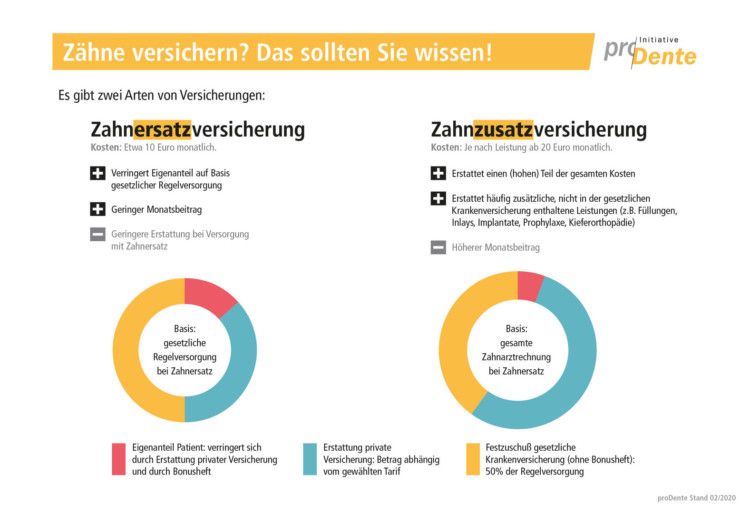Dental insurance – what you should know
private health insurances offer – partly in cooperation with public health insurances – various dental insurances. Basically, a distinction must be made between pure dental prosthesis insurance and more extensive supplementary dental insurances.
These offers are primarily aimed at people with statutory health insurance. For privately insured people there are special insurances for teeth.
Which dental insurances are there?
- Two types of private dental insurance are available for people with statutory health insurance.
- It is worth taking out dental insurance if high costs for dental prostheses are expected in the future.
- Alternatively, a savings contract may also be appropriate.
“Whether private dental insurance is worthwhile depends largely on whether you will have high dental replacement costs in the future. Because only then do the relatively expensive premiums pay off,” explains Julia Rieder, insurance expert at the non-profit consumer information Finanztip. “The crucial question is how you assess the health of your teeth.”
Bottom line: Teeth can be additionally insured, but do not have to be. As an alternative to finance dental prosthesis, a small savings contract can also be expedient.
Who decides for a private insurance of the teeth, should inform itself however well. What exactly does the insurance reimburse? How high are the monthly costs? Test results show: Those who choose the right insurance for them are well covered when dentures become necessary.
© proDente e.V./Johann Peter Kierzkowski
Dental insurance – The dental insurance
Dental prosthesis insurances have a comparatively low monthly premium. However, they only reduce the cost of the co-payment on the basis of a standard dental prosthesis provision. In the event of a claim, they therefore offer fewer benefits than supplementary dental insurance.
This means in concrete terms: If dental prostheses become necessary, the statutory health insurance companies bear 50% of the costs (fixed allowance) of a medically adequate supply (standard supply).
If the patient also has a bonus booklet with complete preventive examinations at the dentist over a certain period of time, the subsidy from the health insurance companies increases to a maximum of 65%. The remaining costs must be borne by the patient himself as his own contribution.
This is where the dental prosthesis insurance comes into play. It reimburses a certain amount of the co-payment. For the patient, this reduces the cost of the co-payment.
Dental insurance – The supplementary dental insurance
For those who would like to afford higher-quality dental prostheses in addition to the medically adequate care (standard care), supplementary dental insurance can pay off. It reimburses part of the total dental bill.
In addition, many supplementary dental insurances offer additional benefits that are not covered by the statutory health insurances. This can cause z.B. Inlays, implants, prophylaxis and orthodontics can be.
However, the higher benefits compared to dental prosthesis insurance are also offset by a significantly higher monthly premium.

© proDente e.V./piabublies.de
